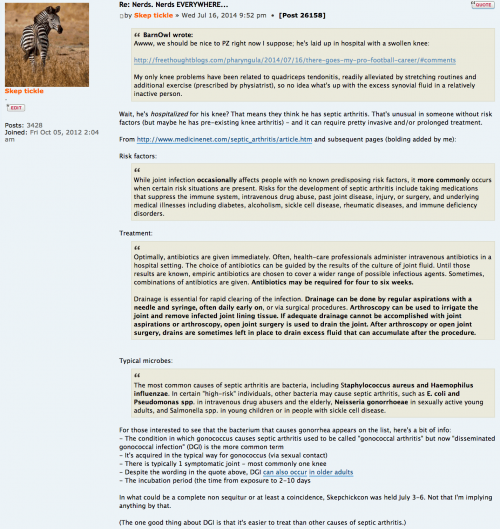BBC reporter Tulip Mazumdar has a heart-wrenching detailed story on Ebola in Sierra Leone.
The trip from London takes 20 hours instead of 6, because most airlines have stopped flying to Sierra Leone; she has to go via Paris and Casablanca.
At the airport there is bleach, and temperature-checking, and warning information on the walls. The handshake has been replaced by patting one’s own chest.
Today we are filming at the country’s main referral hospital – Connaught Hospital in central Freetown. As we enter, I see a woman in a purple and pink shirt lying on a bench, with her head in her hands. She looks extremely unwell. This area is where patients showing symptoms of Ebola come for help, but the help is limited.
This isn’t a treatment centre; it’s an isolation ward within the hospital. People have to travel many miles from here by ambulance to get proper supportive treatment. There are just 18 beds in this hospital, and they are all full.
The latest patient to arrive is a one-month-old baby. Ebola killed both his parents overnight. The chances are he is also infected and will die within days. All medics can do is feed him and hold him through protective suits.
In the cemetery there is a section for Ebola victims; it is full of fresh graves.
The burial team is efficient and almost jovial. I imagine it’s the only way they can keep performing this grim task day in, day out. The cemetery supervisor, Abdul Rahman Parker, tells me he’s been ostracised by his community – people are scared of him now because he handles the bodies of Ebola victims. But he says he doesn’t care, and that Sierra Leone needs him to continue doing this job, even if its people don’t realise it.
The day ends with the burial teams throwing their protective clothing – gloves, masks and body suits – into the last grave. It’s starting to rain again. We remove our protective suits and put them in a yellow biohazard bag, which the burial team disposes of. We spray ourselves with disinfectant, and silently head back to our hotel.
The next day she visits a small treatment center run by an Italian NGO. What she sees when she gets there is a suspected Ebola patient turned away because the center is full.
I peer into the car. Francis is sitting in the passenger seat staring into space. His eyes are red, and he has the hiccups – both are clear symptoms of Ebola. After almost an hour of pleading, the family eventually give up. The five of them pile back into their car and drive away. Everyone in that vehicle is now potentially at risk of catching Ebola.
When we enter the treatment centre, I feel the helplessness and frustration of that family and I demand to know why they didn’t allow that potentially dying man inside. Surely they can do something for him. The centre’s co-ordinator, Luca Rolla, tells me their priority has to be their staff and the patients they are already treating. He tells me that they cannot go over capacity or they risk everyone else inside the centre. One of their doctors has already contracted the virus and is now being treated in Germany.
More centers and more doctors are desperately needed.
While the BBC is filming, though, Luca gets a phone call: another center has a bed available, so he calls Francis’s family and tells them to go straight there.
The next day Tulip films another report.
Then soon after 18:00, just as one of the BBC World presenters is about to introduce me live, my producer, Mark, runs over and tells me some terrible news. Francis Samuka, whom we watched being turned away from a treatment centre yesterday, has died. His family has called and told us he passed away at an isolation centre a few hours ago. His sister could barely speak when she was delivering the news, she was wailing with sorrow. My heart sinks… and then I hear the presenter in my earpiece saying: “Tulip, what’s the latest?”
I explain what’s happened, all the time thinking of Francis’ bloodshot eyes and the look of despair I saw in him just the day before.
I am glad we were able to tell Francis Samuka’s story. It’s important people know this is happening on a daily basis across West Africa. It underlines why governments here and global aid agencies continue to plead for more international help, so patients like Francis can be treated, instead of being turned away.
The BBC does good work.
(This is a syndicated post. Read the original at FreeThoughtBlogs.)









Please get some professional psychological help. I’m serious. Paranoia seems to be consuming you.